A handful of Tory MPs are speaking out against the privatisation of Channel 4, but Conservative advocates are thin on the ground. Given the government’s sizeable majority, what are the broadcaster’s prospects?
“If ever there is a time for a broadcaster like Channel 4, it is now.”
That is the opinion not of C4 chief executive Alex Mahon nor shadow culture secretary Jo Stevens, but Conservative MP Helen Grant, chair of C4’s All Party Parliamentary Group (APPG).
She is the most vocal Tory MP to raise concerns about the privatisation of C4 – co-signing a letter to culture secretary Oliver Dowden earlier this month that outlined several reservations surrounding the sale proposals.
The group, which includes fellow Conservatives Andy Carter and Jason McCartney, as well as Labour MP Julie Elliott, SNP MP Lisa Cameron and Lib Dem peer Baroness Bonham-Carter, warned ministers against rushing into an ill-judged move and highlighted the financial repercussions for indies of removing C4’s publisher-broadcaster model.
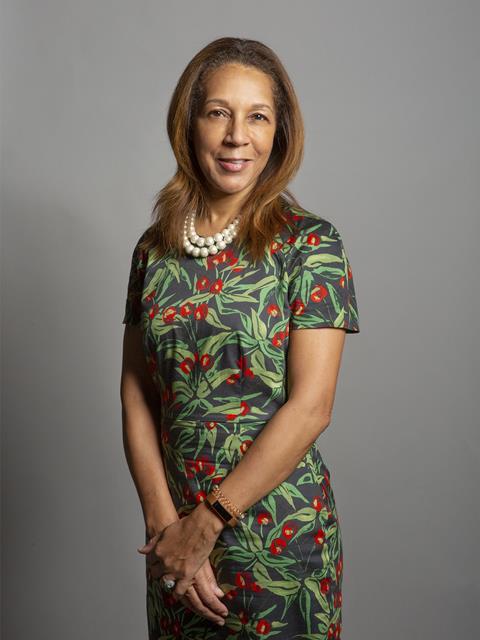
“It is totally reasonable for the government to want to review its assets, but this needs to be an evidence-led process with an impact assessment,” Grant tells Broadcast.
“I am concerned that a new model with a profit motive may stop C4 from being the radical innovating force it was set up to be by Margaret Thatcher in 1982, and which continues to be needed in modern Britain.”
Drumming up opposition
The APPG has requested a meeting with Dowden to discuss its concerns and plans to respond to the consultation before it concludes on 14 September.
Grant, who is attempting to drum up opposition to a sale, considers the plans to be particularly poorly timed.
“C4 is a prized national asset and we need it to continue to deliver its economic, social and cultural value as we come out of this pandemic,” she says.
The support of Grant, a former sports and equalities minister who became interested in C4 via its Paralympics coverage, is likely to be seized upon by the broadcaster’s public affairs team as other Conservative advocates remain thin on the ground – though as Broadcast was going to press, Conservative MPs Andrew Mitchell and father of the house Sir Peter Bottomley also spoke out against the government’s plans.
The consultation states the Department for Digital, Culture, Media and Sport’s (DCMS) preferred position – that an “alternative ownership model may be better for the broadcaster and the country” – and the political odds seem more stacked against C4 retaining its public status than during the previous privatisation attempt in 2016.
Broadcast has spoken to several MPs and figures in the political world, who acknowledge that C4 has little goodwill among the ranks of the Conservative Party, pointing to a perception that Channel 4 News and its wider programming are left-leaning. They mention the stinging criticism of the prime minister by C4 grandee Dorothy Byrne, while Dougie Smith, key adviser to Number 10, is understood to be keen on privatisation.
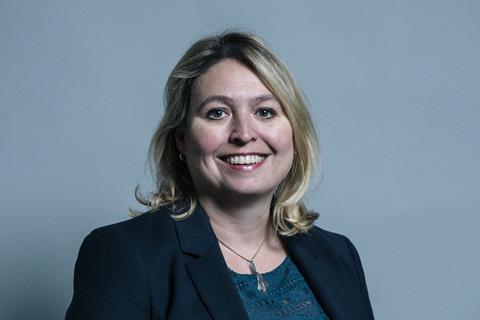
Former culture secretary Karen Bradley, who is sympathetic to C4’s cause, says MPs do not appreciate that the broadcaster does not cost the public anything and underestimate the unique role it plays in helping to drive the creative industry’s ecosystem.
She believes C4’s best bet is to convince other Conservative MPs that it isn’t an outlet for “lefty propaganda” and demonstrate the positive economic impact it makes around the country.
“Unlike the BBC, this isn’t a battle about winning over the hearts and minds of the general public,” says Bradley. “They feel very precious about the BBC but aren’t particularly bothered about [the nuances of] who owns C4. The broadcaster needs to highlight its presence in the nations and regions, how many jobs it supports, and how that would likely be lost if a private owner came in.”
C4 will surely make good use of the fact that its national HQ in the Majestic building in Leeds opens in September, and that under its 4 All the UK strategy, it spent almost half of its £370m originations budget outside the M25 in 2020.
Many observers have noted that mobilising the 274 production company partners it worked with last year could also be very powerful. There is a strong sense that those indies could help shift the tone of the debate by writing to their local MPs and putting the issue on their agenda. That tactic is a clear priority for Pact, which is now firmly on the campaign trail to derail privatisation.
The need to create some political noise is a view shared by Conservative MP Damian Green. A DCMS Committee member, who was among the first crop of Channel 4 News journalists in 1982, he considers a change of ownership unnecessary and has been left “disappointed” by the ‘preferred’ positioning of the consultation.
“The ownership of C4 is not a huge political issue at a time when you have a pandemic, a huge deficit and the government wants to level up the country,” he says.
“This is an issue which is of huge interest to those who care about the future of C4 and the creative industries, but MPs’ email inboxes aren’t filling up with anything about it yet. Those who are dubious need to assemble the evidence that this is going to be very damaging, not just culturally but economically, in return for not very much money.”
Labour’s shadow culture minister Chris Matheson explains the best-case scenario of such an approach.
“If we can make the local economic case as to how selling C4 will negatively affect businesses based in constituencies and reduce views from areas that wouldn’t otherwise be reflected on-screen, then we might be able to shift the dial,” he says.
“MPs will then start to question the reasons for doing it, and the government could opt not to push forward.” But if the tactics fail, he predicts a sell-off.
“So far, there doesn’t seem to be a great deal of pushback against the plans,” he says. “If it comes to a vote, the Conservatives have a majority of 80 and it will be driven through.”
The scale of the fight facing C4 is illustrated by the comments of two Conservative MPs with expertise in the broadcasting sector. DCMS Committee chair Julian Knight says the evolving media landscape “warrants close consideration” of privatisation, while his predecessor, Damian Collins, says that C4’s publisher-broadcaster model is an “anachronism” in an industry dominated by IP-owning operators.
He considers the strong wording of the consultation document to be necessary to show potential investors the government is serious and enable it to assess the options available. “At the end of the consultation, we will want to have a really clear idea of what sorts of organisations are interested in buying it and what conditions could be attached to the sale,” he says.
“You would want to have a pretty good idea of what the outcome could be – and, therefore, whether proceeding with it would be the right thing to do.”
He echoes culture minister John Whittingdale’s argument that C4 is unsustainable in the long term and privatisation would unlock greater investment.
Given all this, what are the prospects of C4 succeeding against the privatisation proposals? The consensus is that making the business case as loudly as possible and potentially garnering support from outside of the TV industry could be its best bet.
It is believed that the advertising agency world is against privatisation, fearing that C4’s traditional ability to attract light and upmarket viewers will be eroded if it becomes more ruthlessly commercial. It will be interesting to see whether the likes of the Confederation of British Industries take a stance on the proposals.
It is the kind of organisation that could hold some sway with the chancellor and Number 10.
A noisy strategy, coupled with backbenchers being bombarded by an agitated indie sector, could turn privatisation into an issue that feels like more political hassle than it is worth. But be in no doubt, the sizeable Conservative majority in parliament and the clear and seemingly unwavering stance from the DCMS mean the battle for C4’s independent future is set to be incredibly challenging.
C4 PRIVATISATION: WHAT THE MPs SAY
“I don’t know what has changed since we last looked but suddenly it seems as if the government is not only thinking about [a sale] but has decided to do it.”
Damian Green MP, Conservative
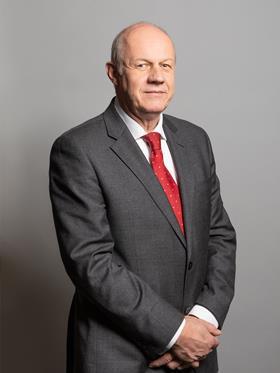
“There is a very vocal public minority that don’t think we should have the licence fee – and they also think C4 should be privatised. And I suspect there are quite a lot of people who have sympathy with that attitude in the Conservative Party.”
Karen Bradley MP, Conservative
“Audiences are shifting their attention to on-demand services, which are investing increasing amounts in producing original content and in turn forcing up costs. [Meanwhile] the PSBs have been spending less on making content - so it is right to have concerns as to whether C4 can thrive in an environment like that.”
Damian Collins MP, Conservative
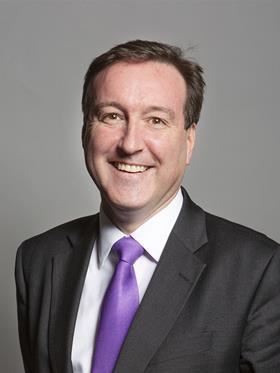
“Channel 4 has a strong reputation for its innovative and diverse content, and we think that could mean it appeals to a number of different purchasers should we decide to pursue a sale.”
Baroness Diana Barran, Conservative
“If it’s sold off to the highest bidder then what distinguishes it from all the other channels will disappear. It will just become Channel 4 and a half”
Chris Matheson MP, shadow culture minister
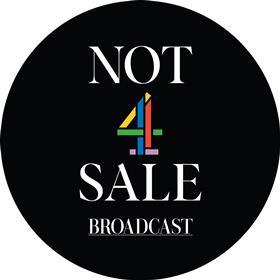
Broadcast’s Not 4 Sale anti-privatisation campaign has attracted signatories from close to 140 indie bosses, along with a clutch of industry-wide organisations.
If you would like to join email not4sale@broadcastnow.co.uk indicating whether you are joining in a personal capacity or signing up your business, to enable Broadcast to highlight each area when publishing the results.

































1 Readers' comment